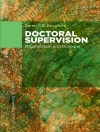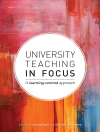The university system is no longer fit for purpose. UK higher education was designed for much smaller numbers of students and a very different labour market. Students display worrying levels of mental health issues, exacerbated by unprecedented levels of debt, and the dubious privilege of competing for poorly-paid graduate internships. Meanwhile who goes to university is still too often determined by place of birth, gender, class or ethnicity.
Who are universities for? argues for a large-scale shake up of how we organise higher education, how we combine it with work, and how it fits into our lives. It includes radical proposals for reform of the curriculum and how we admit students to higher education, with part-time study (currently in crisis in England) becoming the norm.
A short, polemical but also deeply practical book, Who are universities for? offers concrete solutions to the problems facing UK higher education and a way forward for universities to become more inclusive and more responsive to local and global challenges.
Tabela de Conteúdo
Introduction: Who are universities for?
Towards a university for everyone: some proposals
Invisible crises: the state of universities in the UK
‘It’s not for me’: outsiders in the system
Education and the shape of a life
False negatives: on admissions
The women in Plato’s Academy
Where do the questions come from?
Conclusion: The university-without-walls
Sobre o autor
Richard Pettigrew is Professor of Philosophy at the University of Bristol, with particular interests in formal epistemology and the philosophy of mathematics. He set up the Foundation Year in Arts and Humanities. He has worked, outside the university, on projects addressing literacy in prisons and supporting adults with learning disabilities.












